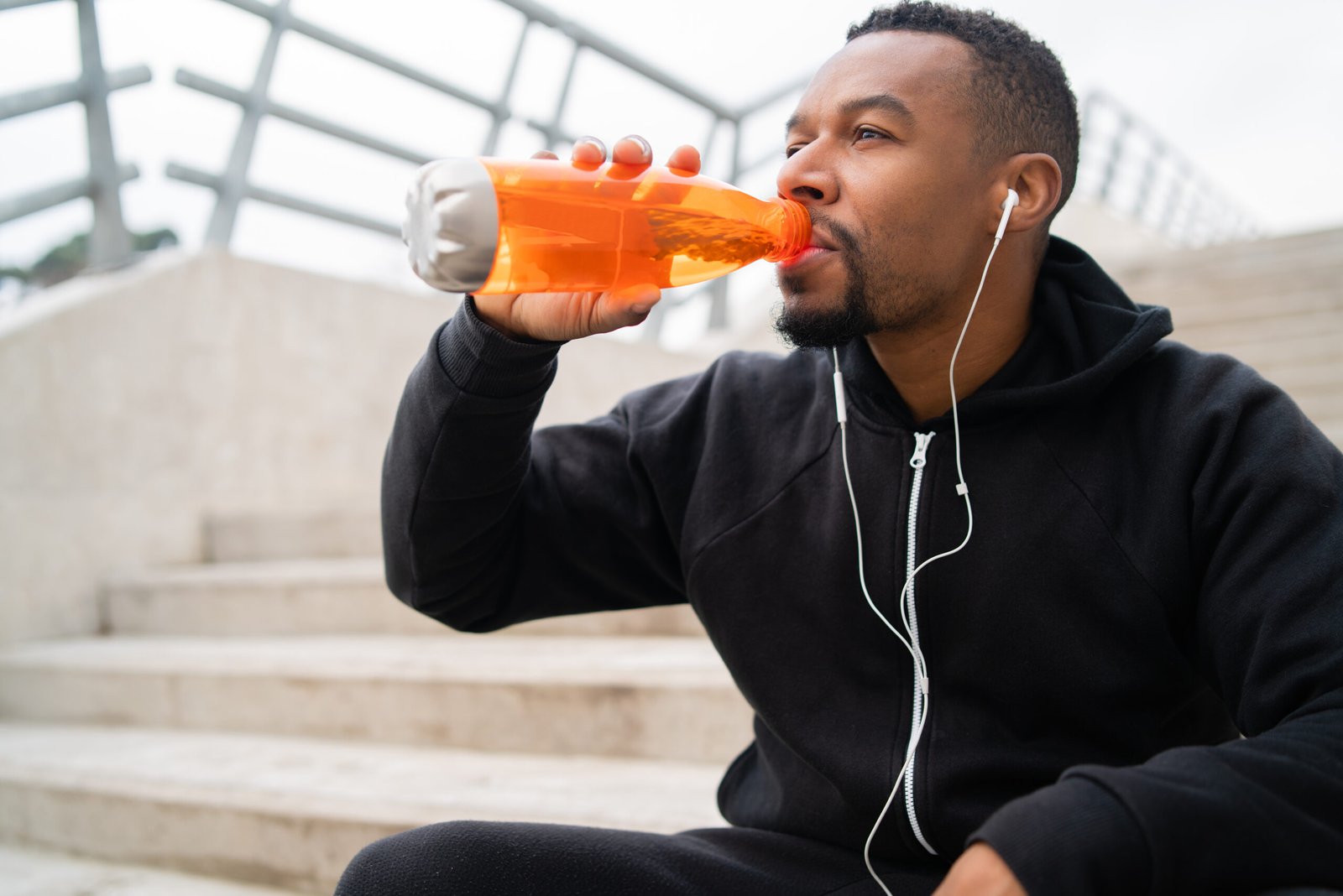Energy drinks are common go-to choices for late-night shifts, long commutes, or just surviving UK weather—but consuming them regularly can do more harm than good. Whether you’re hustling in healthcare, working shifts, or juggling multiple gigs, it’s important to understand how energy drinks can affect your health over time.
Let’s break it down Naija-style: here’s what you need to know.
🚨 1. They Can Affect Your Heart
Energy drinks are loaded with caffeine, which can lead to:
- Irregular heartbeats (palpitations)
- High blood pressure
- Even heart attacks in extreme cases
For Nigerians already managing high blood pressure or heart issues, this is not something to overlook—especially in a cold country where heart conditions can worsen quickly.
😟 2. Increased Anxiety, Restlessness & Poor Sleep
That extra jolt of caffeine may help keep you awake, but long-term use can:
- Increase anxiety
- Disrupt your sleep cycle
- Cause irritability and even depression
Mental health is just as important as physical health—especially for migrants navigating a new environment.
🍬 3. Sugar Highs = Blood Sugar Spikes
Many energy drinks contain a lot of sugar, which can:
- Spike your blood sugar
- Lead to insulin resistance
- Increase risk of type 2 diabetes
Diabetes is already a growing concern in African communities in the UK—don’t make it worse with excess sugar.
💧 4. More Urine, More Dehydration
Caffeine makes you pee more, which increases the risk of dehydration—especially in winter when you may not feel thirsty. Long-term use can even affect your kidney function.
🦷 5. Your Teeth Can Suffer
The sugar and acid in energy drinks can erode tooth enamel, leading to:
- Cavities
- Tooth sensitivity
- Expensive dentist visits (and we all know NHS dental waitlists aren’t it!)
🚽 6. Digestive Upset
From frequent toilet trips to bloating, nausea, and even gastritis, your gut will feel the impact—especially if you’re relying on energy drinks for an early shift or school run.
⚖️ 7. You May Gain Weight
With all the sugar and empty calories, it’s easy to gain weight without realising it. Add in a sedentary lifestyle (especially during UK winters), and the scale will reflect it soon enough.
❗ Who Should Avoid Energy Drinks?
If you’re in any of these groups, energy drinks should be off your radar:
- Children and teens
- Pregnant or breastfeeding women
- Anyone with heart, mental health, or blood pressure conditions
- People on medications that may react with caffeine
- Anyone sensitive to caffeine
👀 Watch Out for These Warning Signs
If you notice any of these symptoms, energy drinks could be the cause:
- Rapid heartbeat
- Dizziness or confusion
- Nausea or vomiting
- Seizures or hallucinations
- Extreme thirst or frequent urination
☕ Healthier Alternatives
Looking for a better way to stay alert? Try:
- Coffee or tea (without sugar overload)
- Caffeine supplements in moderation
- Natural juices or smoothies for energy boosts
- Water—still the OG for hydration!
🧠 Key Takeaway for Naija Folks in the UK:
Energy drinks may seem like the perfect fix for long shifts and hustle life, but overuse can harm your heart, sleep, mental health, and waistline. Moderation is key—and if you’re feeling tired, maybe what you need is more sleep and hydration, not another can.
Stay healthy, Naija fam 🇳🇬🇬🇧 — your body will thank you later.
Join Our WhatsApp Channel
Stay updated on the latest UK news, including education, health, job openings, and more for those living in the UK!
Join here: Naija UK Channel
Also, follow us on our social media channels for the latest updates and discussions:
- Twitter: @NaijaUKConnect
- Facebook: Naija UK Connect
- Instagram: @naijaukconnect




